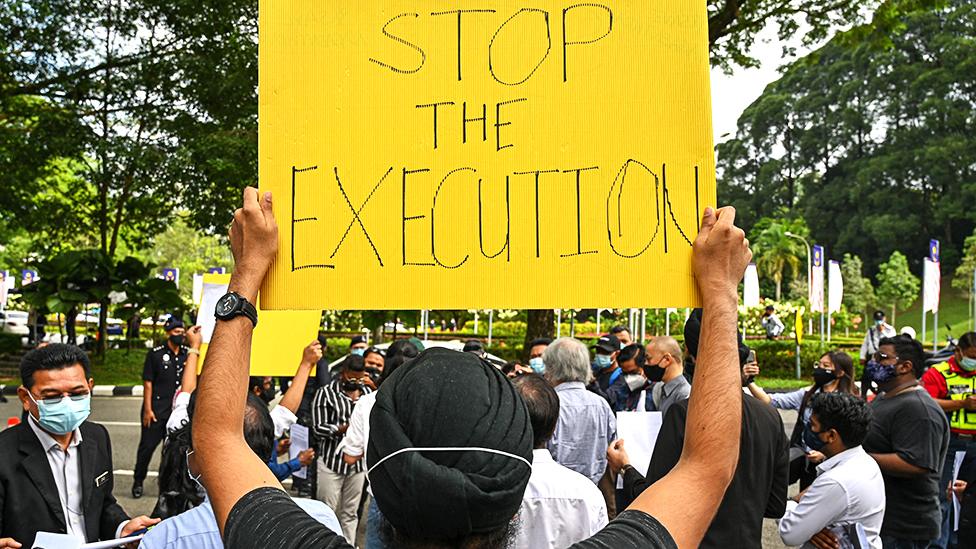Malaysia ends mandatory death penalty for serious crimes
- Published

There has been a moratorium on executions in Malaysia since 2018
Malaysia's parliament has voted to remove the country's mandatory death penalty, potentially sparing more than 1,300 prisoners on death row.
The country has had a moratorium on executions since 2018.
But lawmakers on Monday overwhelmingly voted to remove the death penalty as the mandatory sentence for 11 serious crimes, including murder and terrorism.
Judges will retain discretion to impose capital punishment in exceptional cases.
But for the most serious crimes, the courts will now hand down life imprisonment sentences of up to 40 years, or corporal punishment such as caning, lawmakers said.
The reforms still need to clear the country's upper house but are widely expected to pass.
Speaking in parliament on Monday, Malaysia's deputy law minister said capital punishment was irreversible and had not worked as a deterrent to crime.
"The death penalty has not brought the results it was intended to bring," said Ramkarpal Singh.
There are 34 criminal offences punishable by death in Malaysia - 11 of which before Monday carried the mandatory death penalty.
The new laws once enacted will apply retrospectively, allowing those on death row 90 days to seek a review of their sentences.
There are currently 1,341 such prisoners in the country, more than 60% of whom had received a mandatory sentence according to an Amnesty International assessment.
The legislative process of overturning the country's death penalty began last June, when the former government under Prime Minister Ismail Sabri Yaakob announced it would abolish the death penalty as a mandatory punishment.
However Malaysia has been debating abolishing capital punishment for over a decade now. The two critical bills to reform the laws were introduced into parliament last week following a year of political debate.
Rights groups have hailed the reform as a major step forward for Malaysia and the wider South East Asia region, with Human Rights Watch saying it hoped it might influence neighbouring countries.
Last year, neighbouring city-state Singapore executed 11 people for drug trafficking offences.
The military government in Myanmar also handed down its first death sentences in decades, executing four pro-democracy activists.
According to official data, some 1,318 prisoners were hanged between 1992 and 2023 in Malaysia.
Related topics
- Published12 November 2018